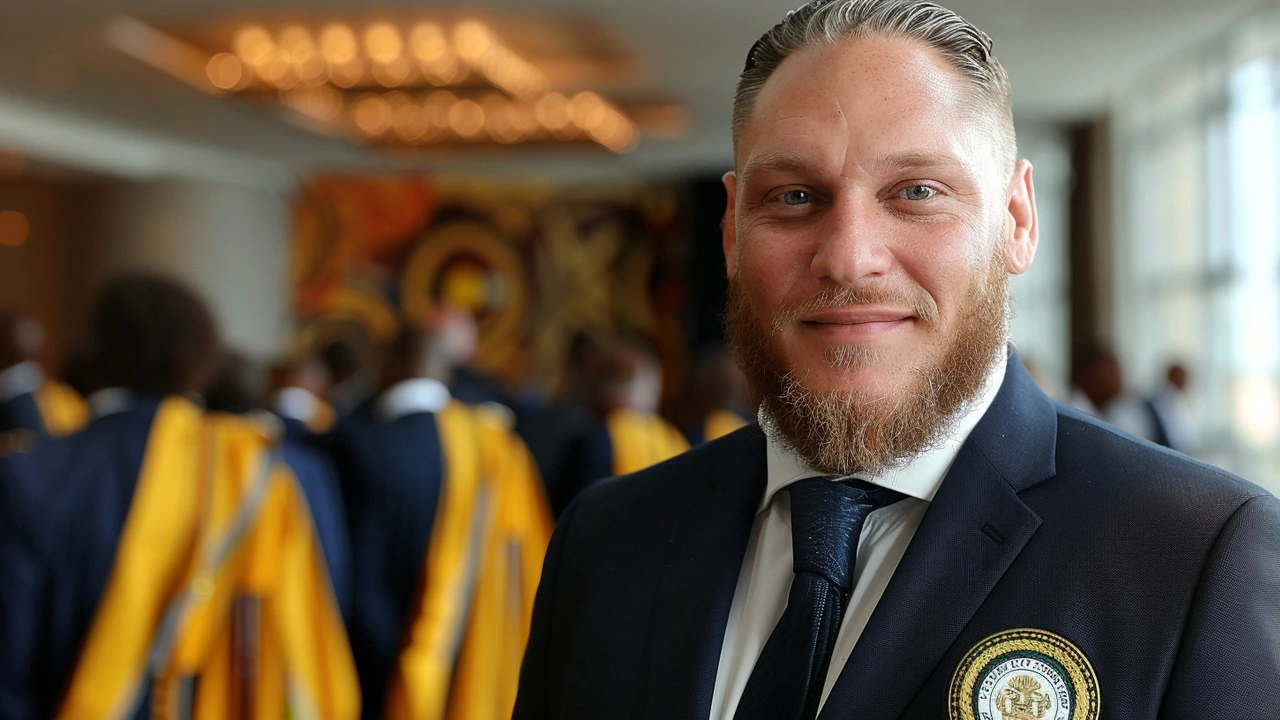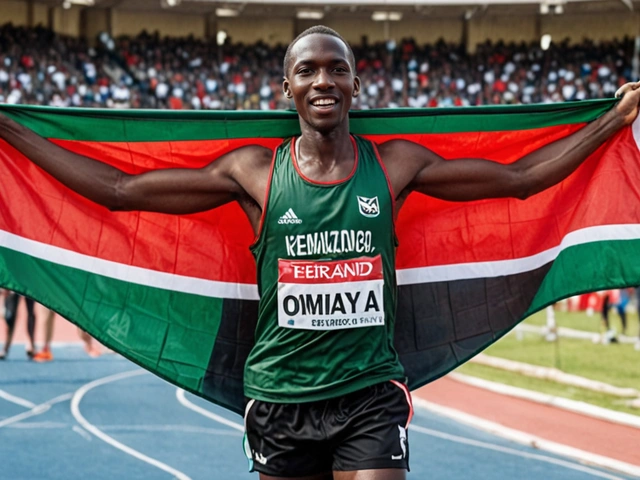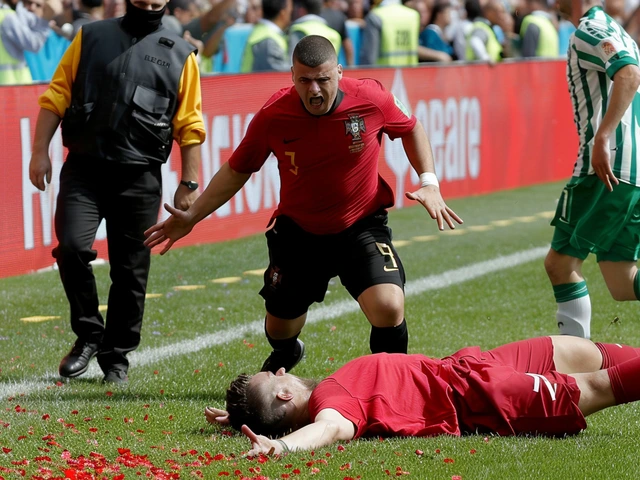Renaldo Gouws Suspended from Parliament for Racist Remarks
In a recent upheaval in South African politics, Renaldo Gouws, a prominent member of Parliament representing the Democratic Alliance (DA), has faced suspension following the resurfacing of incriminating videos. The clips, which quickly went viral, feature Gouws using extremely derogatory and racist language targeted at black people. He is explicitly heard saying, 'Kill the f***ing k*****s, kill all the f***ing n*****s.' This has prompted a swift action both from his political party and the broader human rights community in South Africa.
Immediately after the videos gained traction online, the Democratic Alliance confirmed their authenticity. The party acted without delay, suspending Gouws and launching an internal investigation to determine the context and implications of his statements. The DA has made it clear that they take such matters seriously, emphasizing their commitment to uphold principles of equality and non-discrimination. These developments have brought to the forefront issues related to racism within political ranks and have incited public outcry.
Response from Renaldo Gouws
Responding to the backlash, Gouws has publicly apologized for his comments. He pleaded for understanding, stating that the videos were taken when he was much younger and claimed that he 'did not know better' at the time. Despite his apology, the communities affected by his remarks and many others believe that such severe language reveals deep-seated prejudices that cannot be easily excused by youth or ignorance.
His apology has sparked further debate on whether individuals in positions of power should be given leniency for past actions or held accountable to the same standards irrespective of time and age. Many argue that apologies are not enough in cases involving hate speech, especially from public figures who are expected to lead by example and promote unity in a diverse society.
Legal Repercussions
The controversy does not end with the suspension and public apology. The South African Human Rights Commission (SAHRC) has announced that it plans to pursue legal action against Gouws in the Equality Court. Procedural details are still unfolding, but the SAHRC's involvement underscores the seriousness of the issue. They aim to highlight that such expressions of hate will not be tolerated under the nation's law, and those responsible must face the legal consequences.
The legal action by the SAHRC aims to address not just the specific incident but also to set a precedent for holding elected officials accountable for hate speech. This approach reflects a broader strategy of tackling systemic racism and reinforcing the rule of law to protect all citizens equally.
Political and Social Implications
Renaldo Gouws' suspension has rippled through South African politics, with many questioning the vetting process within the Democratic Alliance and other political parties. The incident raises critical issues about how political entities ensure their candidates embody the values they profess. Furthermore, it challenges political leaders to address the roots of racism within their ranks proactively. Calls for increased sensitivity training and reevaluation of candidacy criteria have grown louder.
Socially, this case has reignited conversations on racism and the acceptable limits of freedom of speech. It has also brought attention to the lingering prejudices that persist in society and highlighted the necessity of continued efforts toward racial harmony. This incident adds a complex layer to the ongoing journey toward equality and inclusive representation in South African governance.
Background on Renaldo Gouws
Renaldo Gouws was sworn in as a member of Parliament during the first sitting in Cape Town. His political career was on an upward trajectory, having previously served as a ward councillor in Nelson Mandela Bay, located in the Eastern Cape province. He has been recognized for his work in local governance, earning a reputation for diligence and public service.
The sudden shift from esteemed public servant to a suspended figure embroiled in scandal has been stark. For many, it serves as a reminder that past actions, especially those captured on modern social media, never fully fade. This situation underscores the importance of integrity and respect in public discourse, crucial traits for anyone aiming to represent a diverse population.
Future Prospects
The path forward for Renaldo Gouws remains turbulent. The internal investigation by the Democratic Alliance, coupled with the potential legal challenges posed by the SAHRC, will determine his political future. The broader implications for the DA and their stance on racism and accountability will also come under scrutiny.
Gouws' case will likely serve as a critical test for the DA's policies on discrimination and their commitment to upholding the law. How they navigate this crisis could shape public perception and influence voter trust moving forward. Political analysts will be watching closely to see if the party can maintain cohesion and uphold its principles amid the turmoil.
For the moment, South Africa stands at a crossroads, confronted with the realities of entrenched racial tensions and the actions required to transcend them. The outcome of this situation might offer valuable lessons for both political structures and society as a whole.






16 Comments
Kelly Ellzey
June 22, 2024 AT 10:16 AMI just can't believe how far we've come and how far we still have to go. People say 'it was a different time' but that's never an excuse for dehumanizing language. We're not just talking about words here-we're talking about the kind of thinking that fuels real violence. I hope this leads to real change, not just performative outrage.
And honestly? If your party can't handle this internally, then maybe the public needs to step in harder.
maggie barnes
June 22, 2024 AT 22:51 PMOh please. He was a kid. You people are obsessed with cancel culture. What about all the black politicians who said worse? Where's the outrage? This is just woke mob justice.
Lewis Hardy
June 23, 2024 AT 03:58 AMI'm not defending him, but I do wonder how many of us have said things we regret when we were younger and didn't know any better. The difference is-he said it in public, on camera, and he held power. That’s the problem. It’s not just about the words. It’s about the weight they carry when they come from someone in office.
Maybe the real question is: how do we help people grow, without letting them off the hook?
Prakash.s Peter
June 24, 2024 AT 01:16 AMThis is a textbook case of Western performative moralism. You think your liberal democracy is morally superior? Yet you have no concept of cultural context. In South Africa, the political landscape is complex-racism is systemic, yes, but so is reverse discrimination. Gouws is a scapegoat for deeper institutional failures. The SAHRC’s involvement? Predictable. They’re weaponizing law to suppress dissent.
ria ariyani
June 24, 2024 AT 21:14 PMI mean, I’ve seen the video. I’m not even mad-I’m BORED. But the drama? The outrage? The hashtags? The think pieces? The 3am Twitter threads? I’m HERE FOR IT. This is peak reality TV. Someone get this man a Netflix docuseries. #GouwsGoneWild
Emily Nguyen
June 26, 2024 AT 13:54 PMThis isn't about 'youthful mistakes.' This is about ideological rot. The DA has been quietly tolerating this kind of thinking for years under the guise of 'free speech.' Now they're panicking because the internet noticed. They're not a party of inclusion-they're a party of optics. And this is the cost of that hypocrisy.
Ruben Figueroa
June 27, 2024 AT 11:17 AMLMAO 🤡 'I didn't know better' - bro, you were on camera in a public setting. You had a mic. You had an audience. You didn't 'not know better.' You knew EXACTLY what you were doing. And now you want a pass because you're 'reformed'? Nah. You're still the same guy. The only difference? Now you're famous for being a monster.
Gabriel Clark
June 28, 2024 AT 08:30 AMThe apology is meaningless without structural accountability. Suspension is a start, but what about mandatory anti-racism training? Public reconciliation forums? Restitution? Without those, this is just damage control. South Africa’s history demands more than political theater. It demands truth.
Elizabeth Price
June 28, 2024 AT 12:12 PMWait-so you're telling me a white man in South Africa says something racist and gets suspended? What about the black MPs who've said racist things about white people? Why isn't the media screaming about them? Double standard? Oh wait, no-it's just woke bias. This is why I don't trust any institution anymore.
Steve Cox
June 28, 2024 AT 20:45 PMHonestly, I'm tired of this. Every time something like this happens, we get the same script: outrage, apology, suspension, then silence. And nothing changes. People keep getting elected with the same old hatred in their hearts. We're not fixing the system-we're just swapping out the faces. And the real problem? We're all just watching. Waiting. Hoping someone else will fix it.
Aaron Leclaire
June 30, 2024 AT 14:44 PMSuspension isn't enough.
Mitch Roberts
July 1, 2024 AT 14:31 PMI’m not gonna lie-I cried when I saw this. Not because I’m emotional (I’m a dude, I don’t cry), but because I remember being 19 and saying dumb, hateful things because I thought it made me cool. Then I grew up. But Gouws? He didn’t grow up. He just got better at hiding it. And now the world saw it. That’s the tragedy. Not the video. The fact that he never changed.
Mark Venema
July 2, 2024 AT 22:03 PMThe legal precedent set by the SAHRC's intervention is critical. Hate speech, especially by public officials, undermines the constitutional foundation of South Africa's democracy. The Equality Court's role is not punitive-it is restorative. It seeks to reaffirm the dignity of all citizens. This case should be studied in political science curricula worldwide as a model of institutional accountability.
Brian Walko
July 3, 2024 AT 05:10 AMI think we need to separate the person from the act. He made a terrible mistake. He apologized. He’s being held accountable. Now, the real question is: can he learn? Can the DA learn? Can we all learn? This isn’t about punishment-it’s about transformation. And transformation takes time, patience, and real effort.
Derrek Wortham
July 3, 2024 AT 07:47 AMI saw the video. I watched it 12 times. I’m not saying he’s a monster-I’m saying he’s a symptom. The real monster is the system that let him rise to power without vetting his past. The real monster is the media that ignored this until it went viral. The real monster is US-for not asking harder questions sooner.
Rishabh Sood
July 3, 2024 AT 10:12 AMThe ontological crisis of post-colonial identity manifests in such performative outbursts. Gouws, as a product of Afrikaner hegemonic trauma, internalized the colonial gaze, and regurgitated it as linguistic violence. His apology is not sincerity-it is epistemic capitulation to liberal hegemony. The SAHRC’s legal action is merely a palliative; true healing requires epistemological decolonization of political discourse itself.